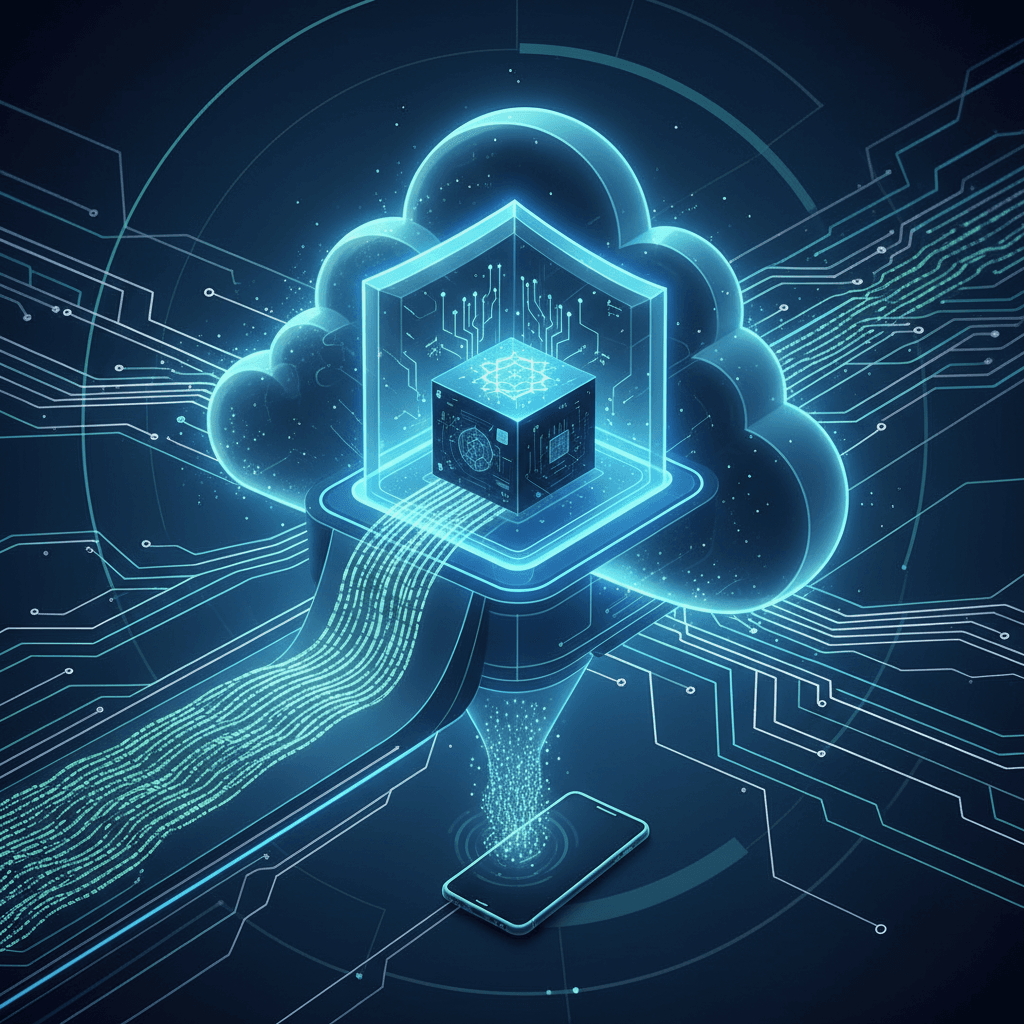Google Unlocks Cloud AI Power with Private Compute, Rivaling Apple.
Google's Private AI Compute tackles the AI paradox, bringing powerful cloud experiences with on-device privacy, intensifying the Apple rivalry.
November 12, 2025

In a significant move that mirrors a broader industry shift towards privacy-centric artificial intelligence, Google has introduced Private AI Compute, a new cloud-based system designed to handle complex AI tasks without compromising user data. The platform aims to provide the power and speed of Google's most advanced Gemini models with the stringent privacy assurances typically associated with on-device processing. This development follows Apple's rollout of its Private Cloud Compute platform, signaling a new competitive front between the tech titans, focused on winning user trust as AI becomes more deeply integrated into personal technology. Private AI Compute represents a fundamental re-architecture of how sensitive information is handled, creating a secure and isolated environment in the cloud where data can be processed without being stored or made accessible to anyone, including Google itself.
At the heart of Google's new system is a multi-layered security architecture built on the company's own custom hardware. The platform runs on Google's Tensor Processing Units (TPUs) within what it calls Titanium Intelligence Enclaves (TIE).[1][2][3] These enclaves are essentially secure, hardware-isolated environments designed to be cryptographically sealed from the rest of Google's infrastructure.[4] When a device, such as a Pixel phone, sends a request that is too computationally demanding for its local processors, the data is encrypted end-to-end and sent to one of these enclaves.[1][5] A key technical safeguard is remote attestation, a process where the device cryptographically verifies that the cloud environment is secure and running the correct, unmodified software before any data is decrypted for processing.[6][4] Google also utilizes AMD-based Trusted Execution Environments to further encrypt and isolate memory from the host system, effectively blocking even administrative access at the hardware level.[7] This ensures that the computation is "stateless," meaning the data is processed ephemerally and wiped immediately after the task is complete, leaving no trace behind.[4]
The introduction of Private AI Compute is a direct response to a fundamental paradox in modern AI: the most capable models require immense cloud computing power, yet users are increasingly wary of sending personal data to the cloud.[8][7] On-device processing has been the primary solution for privacy-sensitive tasks, but it is limited by the computational resources of a phone or laptop.[8][7] Google's new platform attempts to offer the best of both worlds, enabling more powerful and proactive AI experiences without forcing users into a privacy trade-off.[5] The initial rollout will be seen in features on the upcoming Pixel 10, such as Magic Cue, which will provide more timely and context-aware suggestions by securely processing information from apps like Gmail and Calendar.[1][8][7] The Recorder app will also leverage the system to summarize transcriptions in a wider range of languages, a task too demanding for on-device processing alone.[1][8][7] This strategy mirrors Apple's approach with Private Cloud Compute, which similarly offloads complex requests from Apple Intelligence to secure servers running on custom Apple silicon.[9]
This convergence of strategies between Google and Apple signals a pivotal moment for the AI industry, establishing secure cloud processing as the new standard for personal AI assistants. By validating Apple's privacy-first approach, Google is escalating the competition for mobile AI dominance, making user trust a central battleground.[8] For years, Google's strength in AI has been partly built on its ability to leverage vast amounts of user data to improve its models. This new architecture represents a significant strategic shift, as it voluntarily limits the company's ability to see or use this data for model training.[8] For businesses and consumers, this trend could lower the barriers to AI adoption, particularly in regulated fields like finance and healthcare where data privacy is paramount.[10] The ability to use powerful cloud AI tools without risking sensitive data could unlock new levels of productivity and innovation.[10] The success of these platforms will ultimately depend on their ability to prove their security claims, as both companies will face intense scrutiny from security researchers.
In conclusion, Google's Private AI Compute is more than just a new feature; it is an architectural and strategic realignment that addresses the core tension between AI capability and user privacy. By creating a secure, verifiable "black box" in the cloud, Google, alongside Apple, is charting a course for a future where personal AI can become more powerful and helpful without demanding users sacrifice control over their most sensitive information. This move not only intensifies the rivalry between the world's leading tech companies but also sets a new, higher bar for privacy and security across the entire artificial intelligence industry. As these systems roll out, the focus will shift from promises to execution, with the ultimate victor being the platform that can most effectively earn and maintain the trust of its users.
Sources
[1]
[4]
[5]
[8]
[9]
[10]